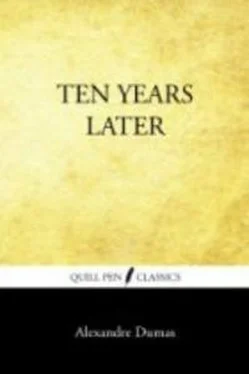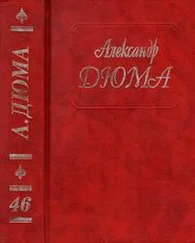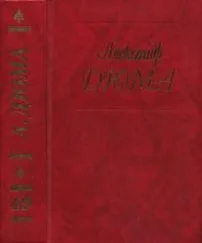Александр Дюма - Ten Years Later
Здесь есть возможность читать онлайн «Александр Дюма - Ten Years Later» весь текст электронной книги совершенно бесплатно (целиком полную версию без сокращений). В некоторых случаях можно слушать аудио, скачать через торрент в формате fb2 и присутствует краткое содержание. Год выпуска: 2014, Издательство: epubBooks Classics, Жанр: Исторические приключения, на английском языке. Описание произведения, (предисловие) а так же отзывы посетителей доступны на портале библиотеки ЛибКат.
- Название:Ten Years Later
- Автор:
- Издательство:epubBooks Classics
- Жанр:
- Год:2014
- ISBN:нет данных
- Рейтинг книги:4 / 5. Голосов: 1
-
Избранное:Добавить в избранное
- Отзывы:
-
Ваша оценка:
- 80
- 1
- 2
- 3
- 4
- 5
Ten Years Later: краткое содержание, описание и аннотация
Предлагаем к чтению аннотацию, описание, краткое содержание или предисловие (зависит от того, что написал сам автор книги «Ten Years Later»). Если вы не нашли необходимую информацию о книге — напишите в комментариях, мы постараемся отыскать её.
Ten Years Later — читать онлайн бесплатно полную книгу (весь текст) целиком
Ниже представлен текст книги, разбитый по страницам. Система сохранения места последней прочитанной страницы, позволяет с удобством читать онлайн бесплатно книгу «Ten Years Later», без необходимости каждый раз заново искать на чём Вы остановились. Поставьте закладку, и сможете в любой момент перейти на страницу, на которой закончили чтение.
Интервал:
Закладка:
Chapter VI.
The Courtyard of the Hotel Grammont.
On Malicorne's arrival at Orleans, he was informed that the Comte de Guiche had just set out for Paris. Malicorne rested himself for a couple of hours, and then prepared to continue his journey. He reached Paris during the night, and alighted at a small hotel, where, in his previous journeys to the capital, he had been accustomed to put up, and at eight o'clock the next morning presented himself at the Hotel Grammont. Malicorne arrived just in time, for the Comte de Guiche was on the point of taking leave of Monsieur before setting out for Le Havre, where the principal members of the French nobility had gone to await Madame's arrival from England. Malicorne pronounced the name of Manicamp, and was immediately admitted. He found the Comte de Guiche in the courtyard of the Hotel Grammont, inspecting his horses, which his trainers and equerries were passing in review before him. The count, in the presence of his tradespeople and of his servants, was engaged in praising or blaming, as the case seemed to deserve, the appointments, horses, and harness that were being submitted to him; when, in the midst of this important occupation, the name of Manicamp was announced.
"Manicamp!" he exclaimed; "let him enter by all means." And he advanced a few steps toward the door.
Malicorne slipped through the half–open door, and looking at the Comte de Guiche, who was surprised to see a face he did not recognize, instead of the one he expected, said: "Forgive me, monsieur le comte, but I believe a mistake has been made. M. Manicamp himself was announced to you, instead of which it is only an envoy from him."
"Ah!" exclaimed De Guiche, coldly; "and what do you bring me?"
"A letter, monsieur le comte." Malicorne handed him the first document, and narrowly watched the count's face, who, as he read it, began to laugh.
"What!" he exclaimed, "another maid of honor? Are all the maids of honor in France, then, under his protection?"
Malicorne bowed.
"Why does he not come himself?" he inquired.
"He is confined to his bed."
"The deuce! he has no money then, I suppose," said De Guiche, shrugging his shoulders. "What does he do with his money?"
Malicorne made a movement, to indicate that upon this subject he was as ignorant as the count himself. "Why does he not make use of his credit, then?" continued De Guiche.
"With regard to that, I think—"
"What?"
"That Manicamp has credit with no one but yourself, monsieur le comte!"
"He will not be at Le Havre, then?" Whereupon Malicorne made another movement.
"But every one will be there."
"I trust, monsieur le comte, that he will not neglect so excellent an opportunity."
"He should be at Paris by this time."
"He will take the direct road perhaps to make up for lost time."
"Where is he now?"
"At Orleans."
"Monsieur," said De Guiche, "you seem to me a man of very good taste."
Malicorne was wearing some of Manicamp's old–new clothes. He bowed in return, saying, "You do me a very great honor, monsieur le comte."
"Whom have I the pleasure of addressing?"
"My name is Malicorne, monsieur."
"M. de Malicorne, what do you think of these pistol–holsters?"
Malicorne was a man of great readiness and immediately understood the position of affairs. Besides, the "de" which had been prefixed to his name, raised him to the rank of the person with whom he was conversing. He looked at the holsters with the air of a connoisseur and said, without hesitation: "Somewhat heavy, monsieur."
"You see," said De Guiche to the saddler, "this gentleman, who understands these matters well, thinks the holsters heavy, a complaint I had already made." The saddler was full of excuses.
"What do you think," asked De Guiche, "of this horse, which I have just purchased?"
"To look at it, it seems perfect, monsieur le comte; but I must mount it before I give you my opinion."
"Do so, M. de Malicorne, and ride him round the court two or three times."
The courtyard of the hotel was so arranged, that whenever there was any occasion for it, it could be used as a riding–school. Malicorne, with perfect ease, arranged the bridle and snaffle–reins, placed his left hand on the horse's mane, and, with his foot in the stirrup, raised himself and seated himself in the saddle. At first, he made the horse walk the whole circuit of the court–yard at a foot–pace; next at a trot; lastly at a gallop. He then drew up close to the count, dismounted, and threw the bridle to a groom standing by. "Well," said the count, "what do you think of it, M. de Malicorne?"
"This horse, monsieur le comte, is of the Mecklenburg breed. In looking whether the bit suited his mouth, I saw that he was rising seven, the very age when the training of a horse intended for a charger should commence. The forehand is light. A horse which holds its head high, it is said, never tires his rider's hand. The withers are rather low. The drooping of the hind–quarters would almost make me doubt the purity of its German breed, and I think there is English blood in him. He stands well on his legs, but he trots high, and may cut himself, which requires attention to be paid to his shoeing. He is tractable; and as I made him turn round and change his feet, I found him quick and ready in doing so."
"Well said, M. de Malicorne," exclaimed the comte; "you are a judge of horses, I perceive;" then, turning towards him again, he continued, "you are most becomingly dressed, M. de Malicorne. That is not a provincial cut, I presume. Such a style of dress is not to be met with at Tours or Orleans."
"No, monsieur le comte; my clothes were made at Paris."
"There is no doubt about that. But let us resume our own affair. Manicamp wishes for the appointment of a second maid of honor."
"You perceive what he has written, monsieur le comte."
"For whom was the first appointment?"
Malicorne felt the color rise in his face as he answered hurriedly.
"A charming maid of honor, Mademoiselle de Montalais."
"Ah, ah! you are acquainted with her?"
"We are affianced, or nearly so."
"That is quite another thing, then; a thousand compliments," exclaimed De Guiche, upon whose lips a courtier's jest was already fitting, but to whom the word "affianced," addressed by Malicorne with respect to Mademoiselle de Montalais, recalled the respect due to women.
"And for whom is the second appointment destined?" asked De Guiche; "is it for anyone to whom Manicamp may happen to be affianced? In that case I pity her, poor girl! for she will have a sad fellow for a husband."
"No, monsieur le comte; the second appointment is for Mademoiselle de la Baume le Blanc de la Valliere."
"Unknown," said De Guiche.
"Unknown? yes, monsieur," said Malicorne, smiling in his turn.
"Very good. I will speak to Monsieur about it. By the by, she is of gentle birth?"
"She belongs to a very good family and is maid of honor to Madame."
"That's well. Will you accompany me to Monsieur?"
"Most certainly, if I may be permitted the honor."
"Have you your carriage?"
"No; I came here on horseback."
"Dressed as you are?"
"No, monsieur; I posted from Orleans, and I changed my traveling suit for the one I have on, in order to present myself to you."
"True, you already told me you had come from Orleans;" saying which he crumpled Manicamp's letter in his hand, and thrust it in his pocket.
"I beg your pardon," said Malicorne, timidly; "but I do not think you have read all."
"Not read all, do you say?"
"No; there were two letters in the same envelope."
"Oh! are you sure?"
"Quite sure."
"Let us look, then," said the count, as he opened the letter again.
Читать дальшеИнтервал:
Закладка:
Похожие книги на «Ten Years Later»
Представляем Вашему вниманию похожие книги на «Ten Years Later» списком для выбора. Мы отобрали схожую по названию и смыслу литературу в надежде предоставить читателям больше вариантов отыскать новые, интересные, ещё непрочитанные произведения.
Обсуждение, отзывы о книге «Ten Years Later» и просто собственные мнения читателей. Оставьте ваши комментарии, напишите, что Вы думаете о произведении, его смысле или главных героях. Укажите что конкретно понравилось, а что нет, и почему Вы так считаете.












